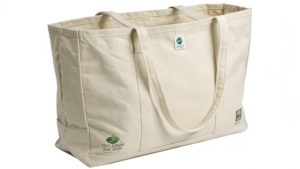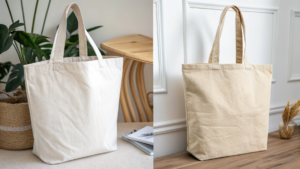How do you choose the perfect water bottle?
I've noticed that picking a water bottle today is a big decision. It's not just about how it looks. It's about how you live, your health, and even the planet.
Choosing a good water bottle means finding one that balances safe materials, smart design, and lasting use. The best bottle fits your daily life, is easy to clean, and helps you stay hydrated while being kind to the environment.
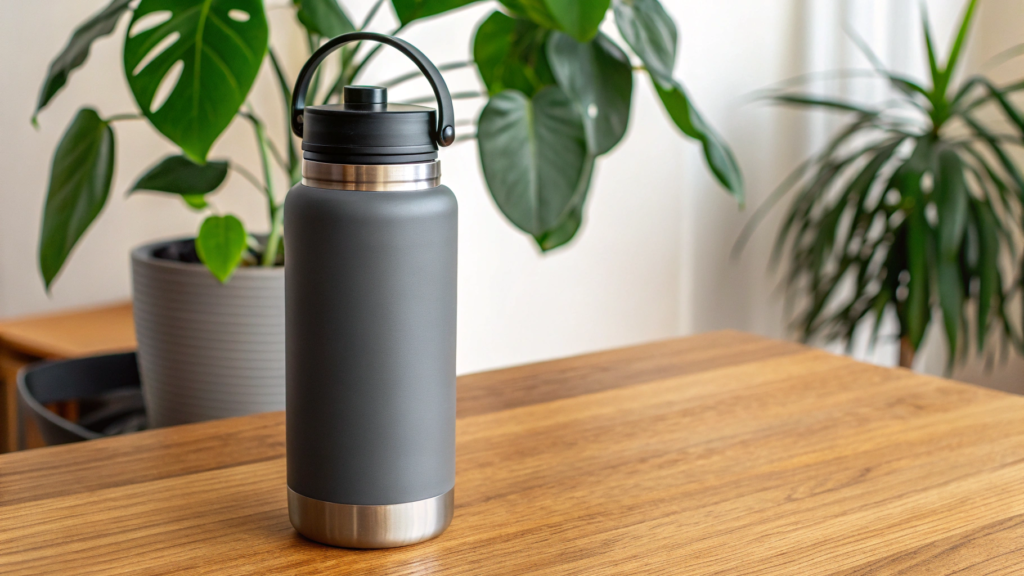
From my experience in the gifting industry, I know that the right product often becomes a part of someone's daily routine. A good water bottle does just that.
What should you look for when buying a water bottle?
Are you feeling overwhelmed by all the water bottle choices? Many people ask me what truly matters when buying one. It's more than just the color.
When buying a water bottle, you should look at the material for health and taste, the capacity to match your hydration needs, the lid type for ease of use and leak-proofing, and features like insulation or a carrying handle to fit your lifestyle.
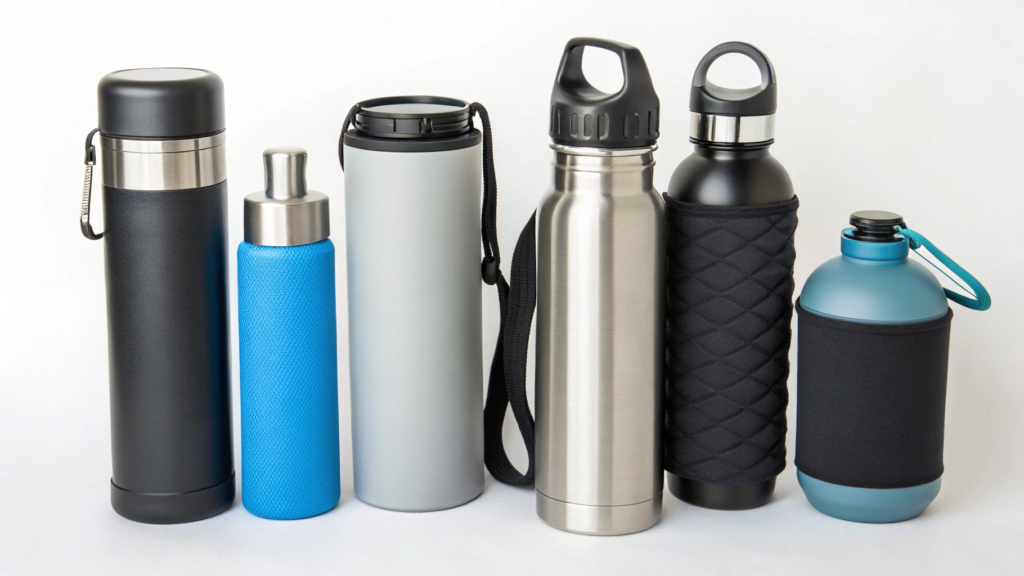
I believe the key to finding the best water bottle is to think about how you will use it every day. Your habits should guide your choice, not just what's popular.
What are the main things to check when picking a water bottle?
When I help clients choose water bottles, I always tell them to think about a few key things. First, consider the material. This affects both health and how your water tastes. For example, stainless steel is durable, while glass offers pure taste. Second, think about the capacity. Do you need a small bottle for short trips or a large one for a whole day? Third, look at the lid type. Some lids are good for quick sips, others are better for avoiding leaks in a bag. Finally, consider special features like insulation or a carrying loop. These make the bottle easier to use every day.
| Feature | Why It Matters | Questions to Ask Yourself |
|---|---|---|
| Material | Affects health safety, taste, durability, and weight. | Do I want glass (pure taste), stainless steel (durable, insulated), or BPA-free plastic (lightweight)? |
| Capacity | Determines how often you need to refill. | How much water do I drink daily? Will I be near a refill station? |
| Lid Type | Impacts ease of drinking, cleaning, and leak-proofing. | Do I prefer a straw, flip-top, wide mouth, or screw cap? Is it easy to open and close? |
| Insulation | Keeps drinks hot or cold. | Do I need my water to stay cold all day, or my coffee hot? |
| Ease of Cleaning | Prevents mold and bacteria growth. | Can I easily clean all parts, including the lid and straw? Is it dishwasher safe? |
| Portability | How easy it is to carry. | Does it fit in my bag or cup holder? Does it have a handle or loop? |
| Durability | How well it withstands drops and daily wear. | Am I prone to dropping bottles? Will it be used in rough environments? |
I once had a client who bought a very stylish bottle, but it was too heavy for her daily commute. She ended up not using it. When we talked, I realized she needed something light and leak-proof. We found a better fit that she uses all the time. This showed me that matching the bottle to your lifestyle is crucial. It’s about practicality, not just looks.
Which type of water bottle is best?
Are you confused about all the different types of water bottles out there? Many people ask me which one is truly the best. It's a common dilemma.
The "best" type of water bottle depends entirely on your personal needs and lifestyle. Stainless steel is excellent for durability1 and insulation, glass offers a pure taste, and BPA-free plastic is lightweight and affordable. Each type has unique benefits that suit different users.
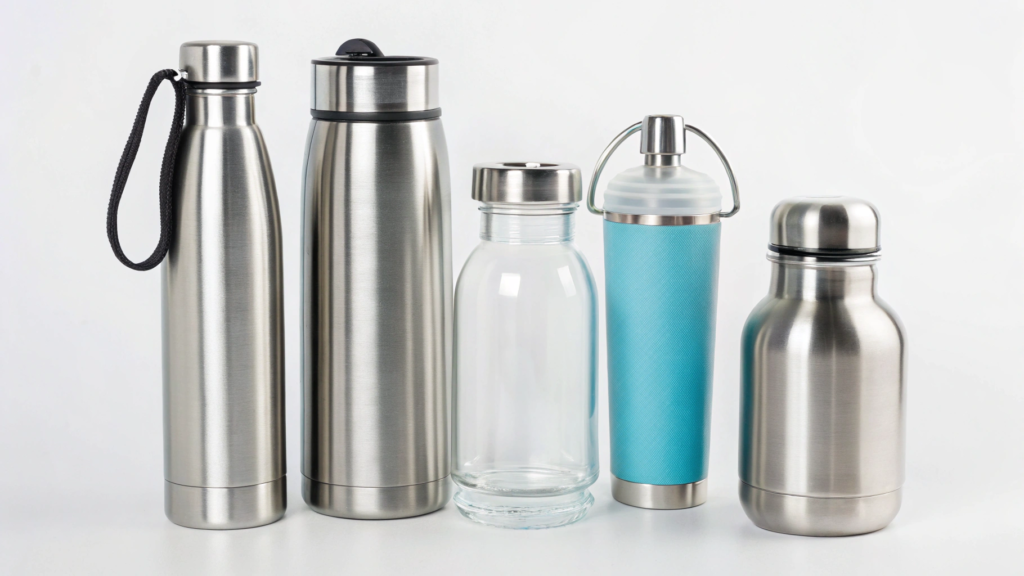
From my perspective, there isn't a single "best" water bottle for everyone. What's best for a gym-goer might not be best for someone who works at a desk. It's about finding your perfect match.
How do you pick the right water bottle type for your needs?
When choosing the "best" water bottle, I always tell clients to think about their main activities. Each material offers different benefits. Stainless steel bottles are great if you need something tough and insulated. They keep drinks hot or cold for hours. Glass bottles are perfect if you want a pure taste and dislike any plastic flavors. They look elegant too. BPA-free plastic2 bottles are lightweight and often cheaper, good for sports or kids. Knowing how you'll use it helps narrow down the best type for you.
| Type of Bottle | Key Features | Best For | Considerations |
|---|---|---|---|
| Stainless Steel | Durable, insulated (often), no flavor transfer, eco-friendly. | Active lifestyles, keeping drinks hot/cold, long trips. | Can be heavier and more expensive. |
| Glass | Pure taste, elegant, easy to clean, eco-friendly. | Home, office, gentle use, those prioritizing taste. | Fragile, heavier, no insulation unless double-walled. |
| BPA-Free Plastic | Lightweight, affordable, durable (some types), often transparent. | Gym, travel, kids, budget-conscious users. | Can retain odors, may scratch easily, less insulation. |
| Silicone (Collapsible) | Flexible, lightweight, compact, often BPA-free. | Travel, hiking, saving space in bags. | Less rigid, may have a slight taste initially, less insulation. |
| Copper | Natural antimicrobial properties, traditional use. | Those interested in Ayurvedic practices, unique aesthetic. | Requires specific cleaning, not for all liquids, can tarnish. |
I once helped a student choose a bottle. She needed something light for her backpack and easy to refill between classes. A durable BPA-free plastic bottle with a wide mouth was the perfect fit. She loved it because it was practical and easy to carry. This experience showed me that the "best" bottle is truly the one that makes hydration easy and enjoyable for you.
What is the healthiest material for a water bottle?
Are you worried about chemicals in your water bottle? Many people ask me about the healthiest materials available. It's a very important question.
The healthiest materials for a water bottle are food-grade stainless steel3 and glass. Both are non-toxic, do not leach chemicals into your water, and are non-reactive, ensuring a pure taste and safe hydration.
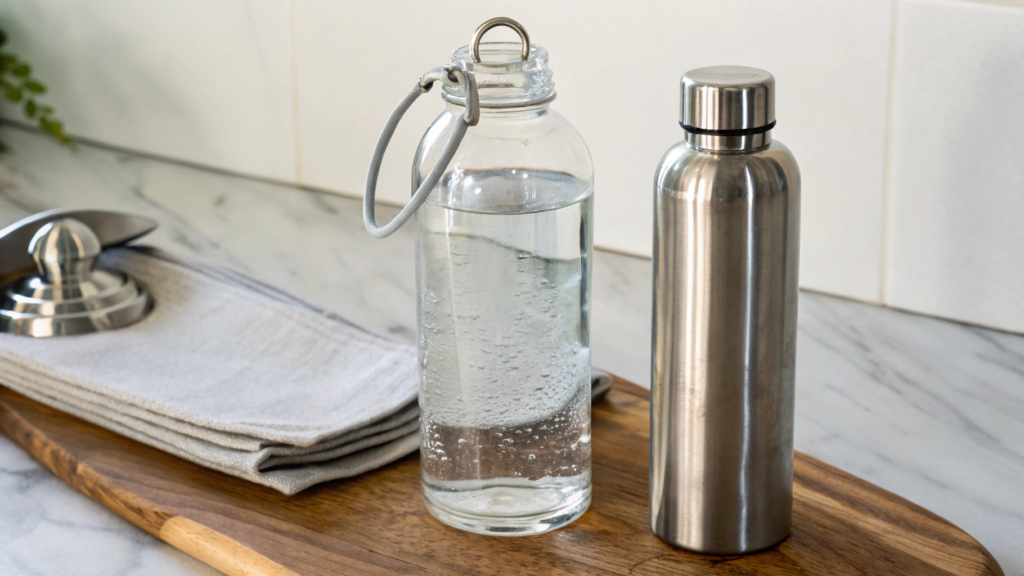
From my personal commitment to wellness, I always prioritize materials that are safe and pure. When it comes to water bottles, some materials clearly stand out for health benefits.
Why are some water bottle materials healthier than others?
When it comes to health, certain water bottle materials are much better than others. I always advise people to look for materials that are non-toxic and non-leaching. Food-grade stainless steel, especially 18/8 or 304, is an excellent choice. It does not contain harmful chemicals like BPA, and it will not react with your drinks. This means no weird tastes and no chemicals in your water. Glass is also very healthy. It is completely inert, so it adds nothing to your water. It also keeps your water tasting very pure. These materials are much better than some plastics that might break down over time and release chemicals.
| Material | Health Benefits | Considerations |
|---|---|---|
| Food-Grade Stainless Steel (18/8 or 304) | Non-toxic, no chemical leaching (e.g., BPA-free), non-reactive, resists bacteria. | Can be heavier; check for reputable brands to ensure true food-grade quality. |
| Glass | Completely inert (no leaching), pure taste, easy to clean, transparent. | Fragile; often comes with a silicone sleeve for protection; heavier. |
| BPA-Free Plastic | Free from BPA; generally lightweight and durable. | While BPA-free, some plastics may contain other chemicals that could potentially leach; can retain odors over time. |
| Silicone (Food-Grade) | Flexible, lightweight, non-toxic, often BPA-free. | Can have a slight initial odor; less rigid, so less protective for contents. |
| Aluminum (Lined) | Lightweight; however, typically lined with a plastic resin. | Check liner material carefully, as some liners may contain questionable chemicals. Not as pure as stainless steel or glass. |
I once had a client who was very sensitive to tastes and wanted absolutely no "plastic" flavor in their water. I recommended a glass bottle with a protective silicone sleeve. They were thrilled with the pure taste and felt much healthier using it. This experience reinforced my belief that choosing the right material is vital for a truly healthy hydration experience. It makes a big difference in daily life.
Conclusion
Choosing a good water bottle means balancing material safety, design, and sustainability. Stainless steel and glass are the healthiest materials. The best bottle fits your lifestyle.



